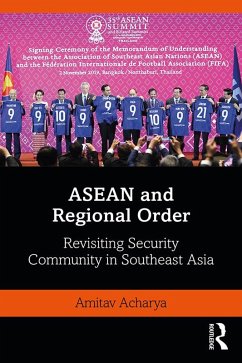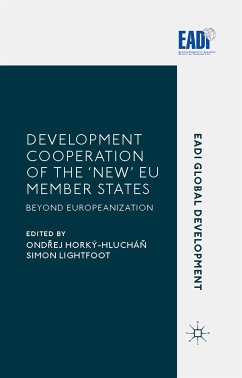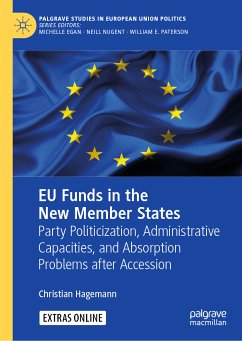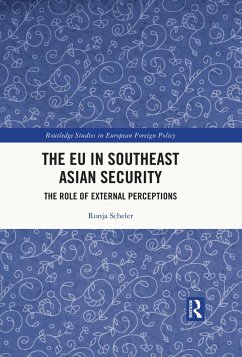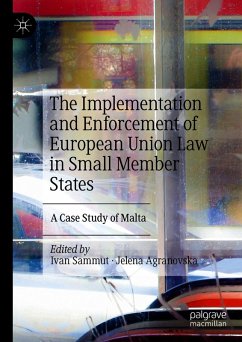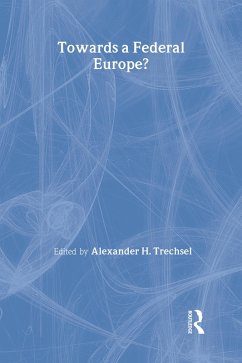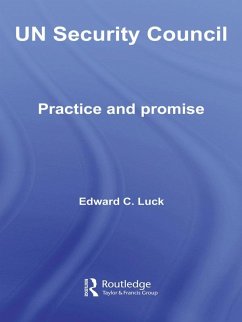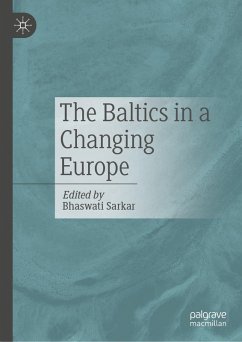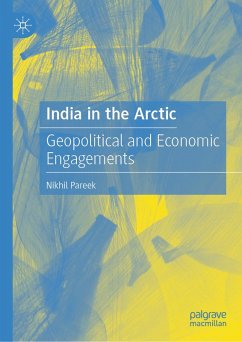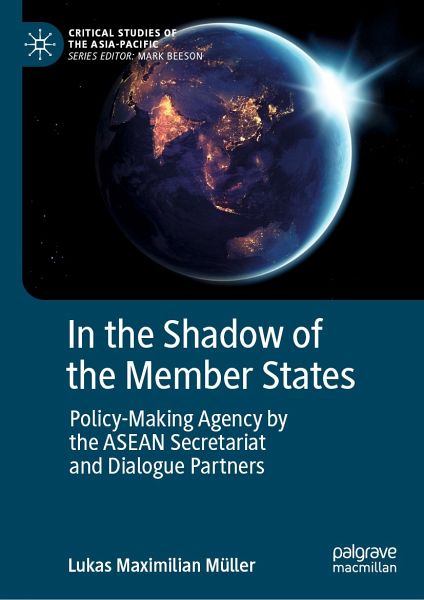
In the Shadow of the Member States (eBook, PDF)
Policy-Making Agency by the ASEAN Secretariat and Dialogue Partners
Versandkostenfrei!
Sofort per Download lieferbar
104,95 €
inkl. MwSt.
Weitere Ausgaben:

PAYBACK Punkte
52 °P sammeln!
This book provides practice-oriented insights into the agency of two previously underestimated actors in Southeast Asian regionalism: the ASEAN Secretariat and ASEAN's dialogue partners. In doing so, it offers an inside view of the policy-making processes in the ASEAN Political-Security and the ASEAN Economic Community, analyzing the interplay and agency by both actors in agenda setting, formulation, decision making, implementation, and monitoring. Drawing on a trove of novel data, including never-before analyzed sources and numerous interviews with ASEAN insiders, the book showcases a number ...
This book provides practice-oriented insights into the agency of two previously underestimated actors in Southeast Asian regionalism: the ASEAN Secretariat and ASEAN's dialogue partners. In doing so, it offers an inside view of the policy-making processes in the ASEAN Political-Security and the ASEAN Economic Community, analyzing the interplay and agency by both actors in agenda setting, formulation, decision making, implementation, and monitoring. Drawing on a trove of novel data, including never-before analyzed sources and numerous interviews with ASEAN insiders, the book showcases a number of concrete cases of policy making, including competition and counterterrorism policies. The chapters focusing on the ASEAN Secretariat address aspects related to institutional autonomy, capacity, and reforms within the bureaucracy. In the chapters on ASEAN's dialogue partners, the book provides insights into the bilateral management of institutional support programs, as wellas the impacts of support on ASEAN's policy-making processes.
Dieser Download kann aus rechtlichen Gründen nur mit Rechnungsadresse in A, B, BG, CY, CZ, D, DK, EW, E, FIN, F, GR, HR, H, IRL, I, LT, L, LR, M, NL, PL, P, R, S, SLO, SK ausgeliefert werden.



